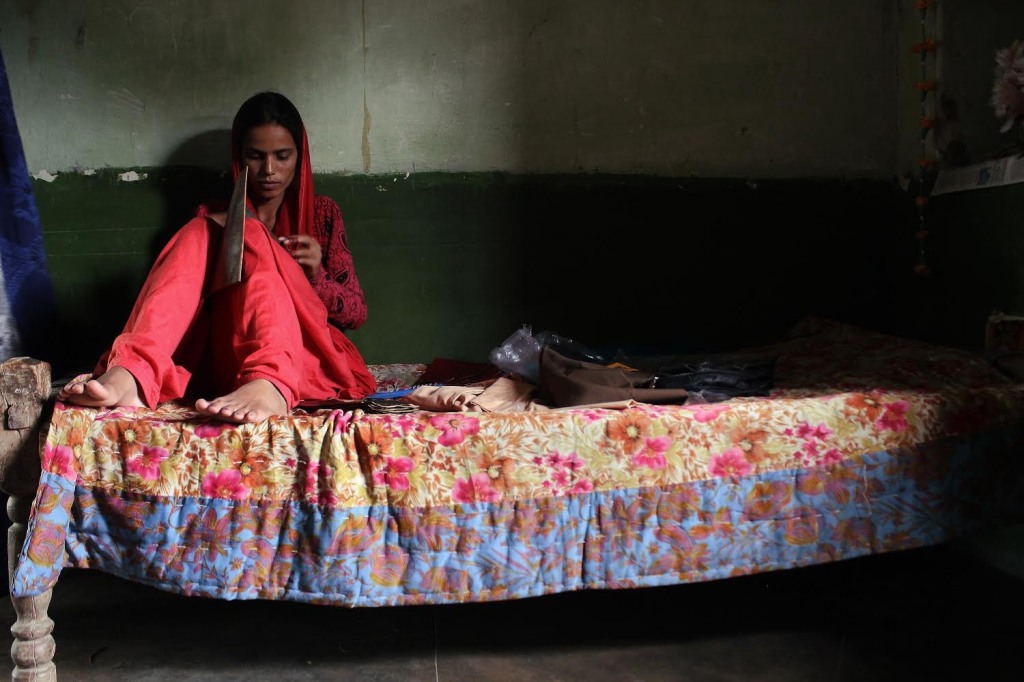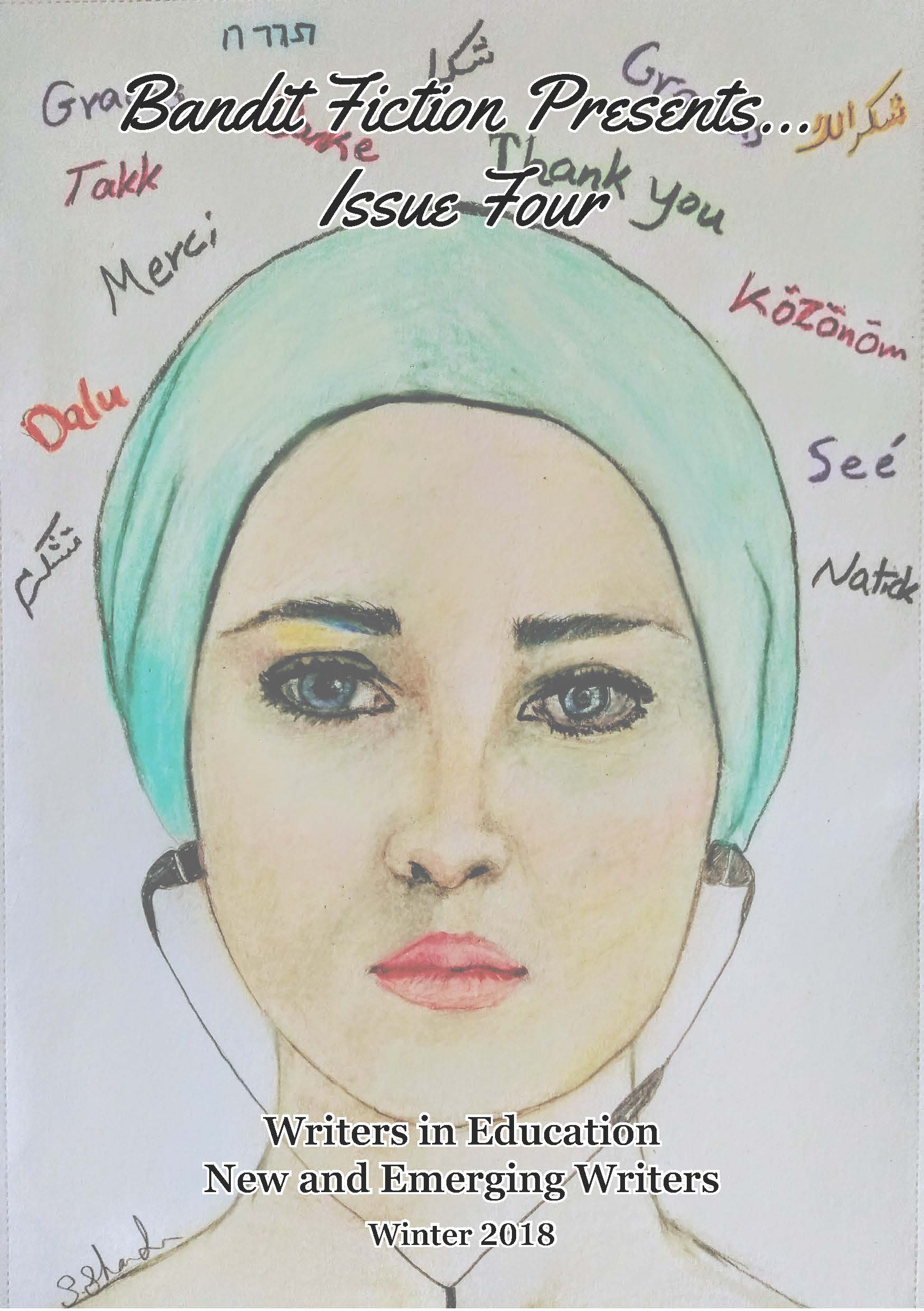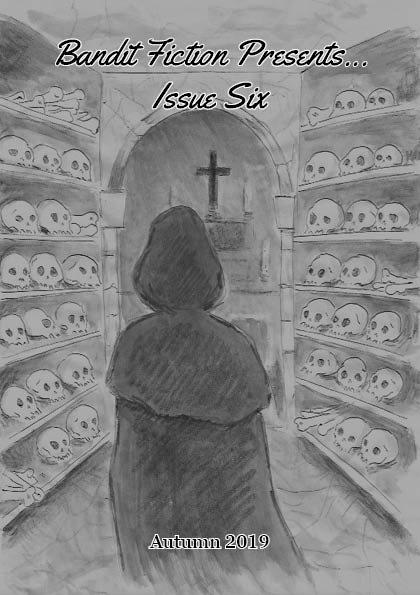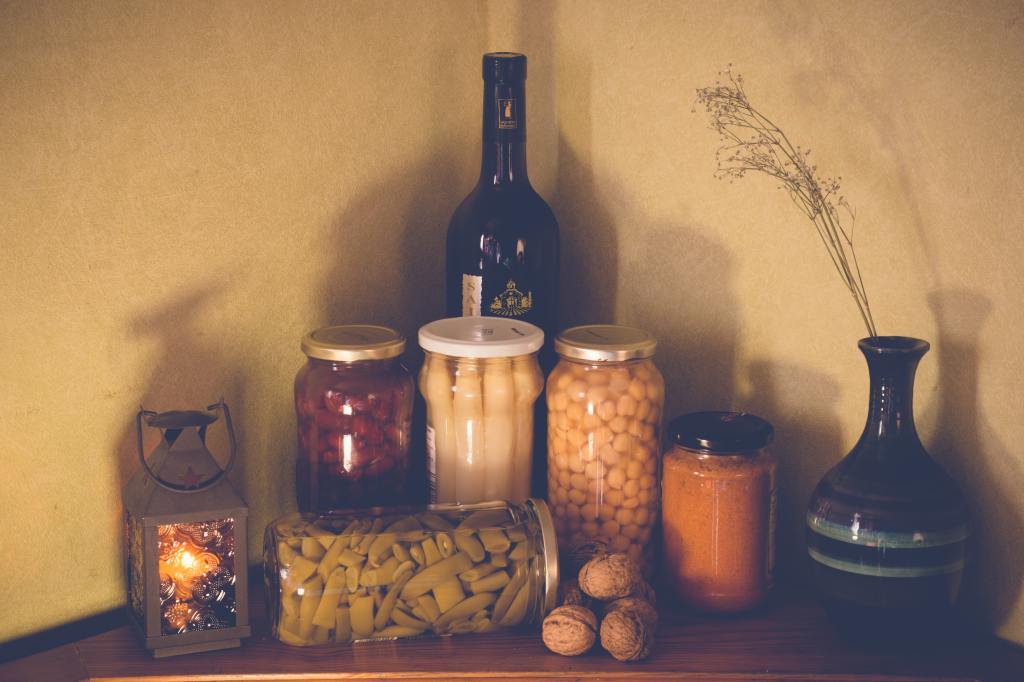
When Subha began working for us, I was twelve, and she said she was seventeen. It seemed a big age difference at the time, despite the fact that I was already taller than she was, and broader too. She was the latest in a long line of full-time housemaids that my mum had employed and subsequently fired for various reasons: stealing my old stuffed animals, taking extended holidays to their hometowns, and the most recent, moonlighting as a sex worker.
Sometimes, my mum would complain about how difficult it was, managing these people. I’d be sitting at the dining table and drinking chocolate milk while she bustled around the kitchen and grumbled. It never mattered much to me, but it seemed to be important to her. I’d let her speak, until, eventually, she’d throw herself onto the chair next to me, press her hands against her temples and exclaim, ‘they’re all the same.’
Subha didn’t seem the same as the other maids we’d had before though. She knew English for a start, so I could actually talk to her instead of communicating through vague hand gestures and broken Telugu. She’d gone to school until sixth grade, she told me while she was folding my laundry on the end of my bed, but then she’d had to drop out and start working.
‘I was working in a sewing company,’ she said, ‘for fifty rupees a day.’ Though it didn’t strike me as a lot, I stayed quiet, taking occasional bites of my pop tart as she spoke.
My mum liked Subha. They’d gossip while making dinner, their tongues rapidly moving through fluent Telugu and Tamil, the kitchen reeking of chilli powder and garlic. I knew my mum missed having someone to talk to in her mother-tongue. My father and I spoke only Hindi and English, and though I could understand Telugu most of the time, I could never get the hang of speaking it.
My father never really interacted much with Subha. She seemed frightened of him, his stand-offish demeanour, his harsh voice. He was a huge man, six feet tall and stocky, with big teeth and small, piercing eyes. He liked Subha well enough, and would address her directly, instead of through my mother or me. Their relationship was confined to her bringing him his dinner every evening after he got home from work. When she did mention him to me, she did so in hushed tones, as though she was afraid someone would hear her talking about him and chastise her.
I spent a lot of time with Subha for the first few months she was with us. I remember her walking alongside me while I was on my bicycle, and the awkward generosity I felt asking if she wanted a turn on it. It felt strange offering her things, although I knew that I had far too much, and she had little. Six months into staying with us, she asked me if I would teach her to read, and I’d dictate alphabets from picture books I’d had since I was five.
Though she was older than I was, there was an unspoken understanding – I say understanding, but in truth, I really didn’t understand anything about it – that she was to look up to me. She addressed me as akka, which meant big sister literally, but was widely used by domestic help to employers. Often, she’d plop down on the floor beside me while I was on the internet, playing mountain-bike games or makeovers, and ask me to explain. I’d roll my eyes in slight annoyance, and describe what I was doing in short terms, and we’d elapse into silence until she had to go and complete another chore.
One evening, when I got back from a school friend’s birthday party, I heard yelling coming from the laundry room. I stood outside the door and pressed my ear against it. I could hear my mum shrieking in Telugu.
‘So irresponsible!’ She was shouting, her voice bordering on the high-pitch screech she usually reserved for drives back from parent-teacher meetings. ‘I don’t know how I let myself trust you with this. I should have known that you would mess it up.’ She exhaled deeply, before muttering ‘bloody female,’ and throwing open the door.
‘How was Roshni’s party, Isha?’ My mum’s voice immediately dropped to its normal tone. I shrugged in response, and she carried on walking to the living room. I hung back for a second and peered inside.
Subha stood in the middle of the room, her face blank. Her eyes were watery and lined with red. I didn’t see any tears, but her face looked etched in stone. She was clutching two pieces of clothing in her hands, both of which, I realised with a sinking feeling, I recognised.
Before Roshni’s party, I’d found a maroon sweater that needed to be washed. Subha usually loaded the washing machine in the afternoon, but on that particular day, she’d decided to do it a bit earlier, so that she’d have my mum’s white kurta ready for a party in the evening. By the time I’d gotten to the machine, it had already started and thoughtlessly, I reset it, throwing in my jumper and pressing buttons at random.
My mum’s kurta, now pink, was crumpled in her fist. Subha noticed me standing at the door, and her eyes met mine. We looked at each other for a long time, before I stepped back and joined my mum in the living room.
***
Subha was quiet some days. I’d find myself getting restless, trying to talk to her while she was in my room, and I’d make an excuse to leave. Some days she’d tell me about her village, somewhere in Tamil Nadu, and I’d squint, trying to picture it. She seemed happier, on these days, describing her older siblings and her mother, how they lived in a small house and were together all the time. She told me about the food her mother used to make – it was much spicier than what we made at my house, and made her stomach burn pleasantly for hours after.
Often, she’d feel lonely in our house. It was too big for her, she said, and that she’d settle for something much smaller when she had her own house and family.
When I was thirteen, I started dating a boy in my class. I didn’t have a phone at the time, so I’d call him on my landline, and we’d speak in low voices, terrified of our parents finding out. Subha would give me her phone now and then, an old Nokia that was on the brink of falling apart. ‘But he has to call you.’ She’d say, ‘I don’t have any money on my sim card.’
I remember this period of my life as a sort of calm time. Nothing really affected me, or made a larger impact on me, outside this boy. Conversations I’d have with friends always seemed to come back to him, and I’d be thrilled at the opportunity to dissect something sweet he’d said or done, to lay it out in front of them: I am loved by this boy. I am worth something.
I liked talking to Subha about him on our walks. She seemed excited to listen, seemed to revel in my happiness. It was on one of these evenings that Subha finally opened up about her own love life.
‘I got married last year, when I went back to my village.’ She said this matter-of-factly, staring straight ahead, with a shrug. I stared at her, uncertain of whether she was joking or not.
‘But, you’re only eighteen!’
Subha looked at me, confused about why I was bringing up her age. ‘Isha akka, girls get married as young as twelve in my village.’
I didn’t say anything. I’d known about child marriage and girls getting wed to repulsively older men. All this, however, seemed like a distant reality, that I’d compartmentalised into something that I would never be subjected to, something that would never affect me.
She talked about her husband, a little bit about him. ‘He’s very big, fat. He calls me every day at seven, and if I don’t answer, he gets angry.’ She pulled the neckline of her kurta down slightly, and I could see a black, puckered welt across her shoulder. ‘Last time, he threw boiling water on me when he got angry at me. He can be quite scary at times.’
That night, I went to bed feeling unsettled. I’d never seen Subha looking so impassive. It was dawning on me slowly that the only reason our lives were so vastly different was that she was born poor and I was not.
***
I began wondering then, what she must think of me. I became conscious of the fact that I hadn’t done anything to deserve the things I had. In a bout of shame and self-consciousness, I found myself avoiding her. I started going on walks later in the evening, when she was expected to prepare dinner. Often, I’d see her look at me as I slipped out the front door. I couldn’t tell what her expression was, but later, I’d feel ashamed of myself, and would come back home annoyed and short-tempered.
She was quieter after that, made less eye contact. She’d often finish folding my laundry while I was still in school. I could hear her downstairs at times, sounding out letters as she read the picture books. There were moments I was tempted to join her, help her, before I closed my bedroom door and went back to sitting on my bed.
My mother never seemed to struggle with the self-loathing I did. On days her friends came over, she would instruct Subha to bring biscuits and tea on a plate, and they’d put their heads together and murmur.
Occasionally I would sit with them, and hear snippets of their conversations, which almost exclusively revolved around their children, their in-laws and their maids.
‘How’s this one working out for you?’ One of them asked my mother one day, gesturing with her chin towards the kitchen, where Subha was peeling vegetables. It seemed universal, this understanding that the maids in our houses needed to be constantly scrutinised and kept in check. I thought of the types of movies where nannies or housekeepers were two-dimensional characters that could be brought in and out of existence when the plot called for it. It seemed as though my mum and her friends had decided that the people they employed only held value so long as they cooked, cleaned and took heed of every command without question.
My mum launched into listing Subha’s best and worst qualities, and I wondered if she was aware that Subha would be able to hear her from where she stood by the sink. I wondered if she even cared. My stomach began to turn, and I put my mug on the dining table, and retreated to my bedroom, no longer wanting to be part of the discussion.
***
When I was fourteen, Subha returned to her village for a month. Her husband’s sister had died, and she was expected to attend the ceremony and take care of her in-laws. My mum had pressed eight five-hundred-rupee notes into Subha’s palms, saying ‘Stay with your family as long as you need to.’
The evening before she left, Subha lingered in my room after collecting empty mugs from my desk.
‘Isha akka, I’ll be back in a few weeks.’ Subha sounded nervous, as though she was waiting for a specific answer that she didn’t expect to get.
‘I hope you come back soon.’ I wanted to say more. I wanted to say that I’d miss her, that I already missed her, that I wished that it was like before, like how she’d sit with me while I watched TV, or how we’d play cards before my mum got home. When her face fell, my heart was thumping against my throat, and I knew that I had a few seconds left before the moment passed and the words would be left inside me forever. Instead, I said, ‘Stay safe, okay?’
I did miss Subha. It wasn’t a conscious thought, or something I lost sleep over, but occasionally, I would look around the house and see something out of place, that she usually would have put away, and feel a pang of melancholy. I most notably noticed her absence when my mum hired a temporary replacement, who always put my clothes away differently, leaving me momentarily confused and annoyed every time I opened my cupboard.
When she eventually came back, my school year was about to start, and I was preoccupied with what high school would be like. Subha didn’t try too hard to talk to me, and I didn’t try to wonder why.
A few weeks later, I’d come home late from school and noticed her standing in the middle of my room, staring at the collage of baby portraits my mum had hung on my wall. She had tears streaming down her face, but she didn’t make a sound.
‘Subha? Are you alright?’ I began to move forward, arms outreached, before dropping them, and standing nervously by the door. She nodded quickly and wiped her face with the corner of her kurta, before hurrying past me into the corridor.
‘Don’t tell mama, okay? Please, Isha akka?’
Subha was subdued after she got back from her village, and I wondered if her husband had hurt her again. I wanted to ask her, but I didn’t know if I was ready for the answer.
‘Ma, do you think Subha’s been different since she got home?’ I asked my mum one evening, when Subha had requested permission to go on a walk.
‘She looks tired. I’m sure her in-laws were difficult to deal with.’ My mum shrugged, turning the page of the novel she was reading.
‘You knew she was married then?’ My mum had never made any indication that she’d known anything about Subha’s personal life, or that she’d even cared enough to remember until then.
‘Of course, she told me when I employed her. Good thing too. Seema, from the eighth floor, hired an unmarried maid, who ran off with one of the security guards with three stolen sarees and a golden chain. Can you imagine?’ She dropped her voice to a thrilled, conspiratorial whisper.
I didn’t reply. I’d been certain my mum would not have allowed this, letting someone who was barely an adult be married to an older, beefier man. I wondered how Subha’s life was back in her village, if she was happy there. Before, I’d always imagined her smiling and running through rice fields with her siblings. Somehow, that image had been tarnished, and was replaced with a picture of her stooped over a small table, serving tea in steel cups, to people who believed that they were entitled to her servitude – an image no different to the life she was leading now. I wondered how many ways there existed to keep a woman bound to what you believed her place was, and whether Subha had thought these things as well.
***
She left, two months later. She was pregnant, it turned out, and was hoping she’d have a miscarriage before she began to show. When she finally told my mother, she had her head bowed.
I was in school the day she went. I’d stood by the laundry room before catching my bus, hesitant about addressing her directly. I thought of telling her that I hoped she’d be free someday. That she’d be happy. I thought of telling her that I’d always remember her, though I didn’t know if that was true. I hugged her hard, for the first time, and told her to call whenever she could.
When I got back from school, I had an ache in my chest. I felt a rush of injustice on Subha’s behalf. I didn’t know if I had the right to feel it, given she’d never expressed any frustration herself, but I did, nonetheless. I opened my cupboard and saw my clothes neatly folded and arranged. I let myself cry for a minute. I did not think about her after that.
My mum mentioned a few years ago that she didn’t believe Subha was more than fourteen when we hired her. I was eighteen at the time and couldn’t stop thinking about this teenager given off to a forty-year-old man and expected to carry his babies.
‘Why would you hire her?’
‘Would you rather she was stuck in her village with her husband over here with us?’
Subha called me, every year on my birthday. She sounded excited to speak to me, and always asked me about school, about who I was dating, what I was doing. When I told her that I was going to go to England for university, she sounded proud of me.
I never asked her what was happening in her own life, though she did tell me about her children. I didn’t want to know more than that. She told my mum that she was working in a garment factory near her village, that she’d made some friends there. She sounded like she was getting by alright. Sometimes, when I think about her now, I even let myself believe that she’s happier. Sometimes, when I am weak.
About The Author
Deeksha Verender is an upcoming Indian writer based in the UK. She likes writing about class, colonial impacts on societal structures and about the female experience.
Bandit Fiction is an entirely not-for-profit organisation ran by passionate volunteers. We do our best to keep costs low, but we rely on the support of our readers and followers to be able to do what we do. The best way to support us is by purchasing one of our back issues. All issues are ‘pay what you want’, and all money goes directly towards paying operational costs.






















Leave a Reply